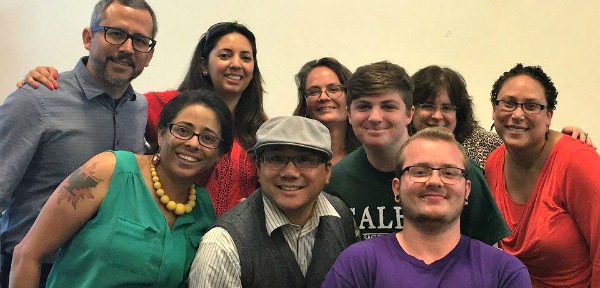
Our Campus Approach
Terms and Concepts That Guide Our Work
The Office of Equity, Social Justice and Multicultural Education is committed to moving our efforts beyond “diversity sensitivity” to a much deeper systemic approach to educational change and social transformation.
We accomplish this through a commitment to intentional practices, guided by the principles of equity, social justice and multicultural education. First, in order to create an institutional dialogue that shifts the discourse to one of equity, social justice and multicultural education, we must define our terms and create shared understanding of our conceptual framework.
Thus, we have provided below a review of the concepts that guide our practices, which are as follows:
Equity || Social Justice || Multicultural Education || Cultural Humility as a Conceptual Framework
Equity
Equality refers to quantity, whereas equity refers to quality. Our commitment is to creating a quality working and learning community for every student, faculty member, classified professional and administrator. Equity is not about fairness or the idea of sameness. Rather, it is much more complex, requiring more critical analysis and systems change in an effort to meet each person where they are in an effort to support the uniqueness that they bring to our institution.
Social Justice
The Center for Economic and Social Justice provides the following definition for social justice, which guides our work in the Equity Office. Social justice is the virtue that guides us in creating those organized human interactions we call institutions. In turn, social institutions, when justly organized, provide us with access to what is good for the person, both individually and in our associations with others. Social justice also imposes on each of us a personal responsibility to work with others to design and continually perfect our institutions as tools for personal and social development. Social justice encompasses economic justice.
Multicultural Education
Multicultural education has been broadly defined by various scholars and practitioners in the fields of early childhood through higher education. The following is a summary provided by National Association of Multicultural Education (NAME) to explain this critical approach and how it can be applied regardless of the institution of education. What’s more, this explanation should serve as a starting place for deeper understanding as well as one that most closely informs the theoretical underpinnings of the De Anza College Equity Office.
“Multicultural education is a process that permeates all aspects of our campus practices, policies and organization as a means to ensure the highest levels of academic achievement for all students. It helps students develop a positive self-concept by providing knowledge about the histories, cultures, and contributions of diverse groups. It prepares all students to work actively toward structural equality in organizations and institutions by providing the knowledge, dispositions, and skills for the redistribution of power and income among diverse groups. Thus, school curriculum must directly address issues of racism, sexism, classism, linguicism, ablism, ageism, heterosexism, religious intolerance and xenophobia.
Multicultural education advocates the belief that students and their life histories and experiences should be placed at the center of the teaching and learning process and that pedagogy should occur in a context that is familiar to students and that addresses multiple ways of thinking. In addition, teachers and students must critically analyze oppression and power relations in their communities, society and the world.
Normal is in the eye of the beholder.
- Whoopi Goldberg, actor

